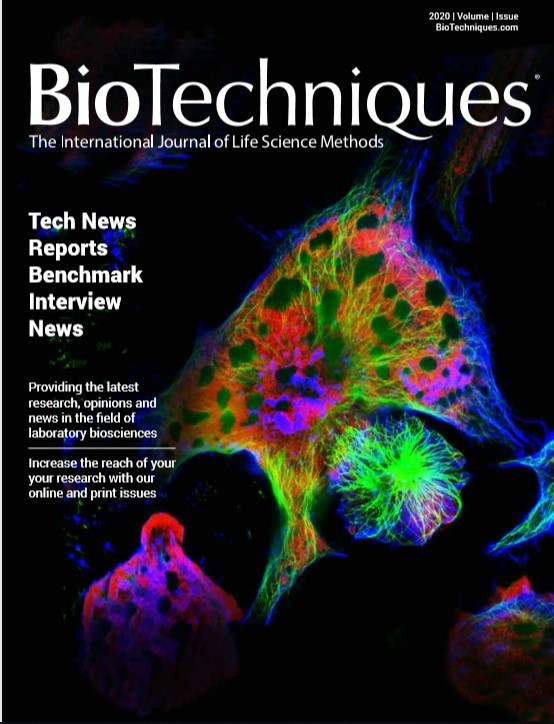Reference genes for gene expression profiling in mouse models of Listeria monocytogenes infection.
IF 2.5
4区 工程技术
Q3 BIOCHEMICAL RESEARCH METHODS
引用次数: 0
Abstract
RT-qPCR dissects transcription-based processes but requires reference genes (RGs) for data normalization. This study prospected RGs for mouse macrophages (pMØ) and spleen infected with Listeria monocytogenes. The pMØ were infected in vitro with L. monocytogenes or vehicle for 4 h. Mice were injected with L. monocytogenes (or vehicle) and euthanized 24 h post-injection. The RGs came from a multispecies primer set, from the literature or designed here. The RG ranking relied on GeNorm, NormFinder, BestKeeper, Delta-CT and RefFinder. B2m-H3f3a-Ppia were the most stable RGs for pMØ, albeit RG indexes fine-tuned estimations of cytokine relative expression. Actβ-Ubc-Ppia were the best RGs for spleen but modestly impacted the cytokine relative expression. Hence, mouse models of L. monocytogenes require context-specific RGs for RT-qPCR, thus reinforcing its paramount contribution to accurate gene expression profiling.用于李斯特菌感染小鼠模型基因表达谱分析的参考基因。
RT-qPCR 可剖析基于转录的过程,但需要参考基因 (RG) 进行数据归一化。本研究为感染李斯特菌的小鼠巨噬细胞(pMØ)和脾脏寻找参考基因。小鼠体外感染单核细胞增多性李斯特菌或载体 4 小时后,注射单核细胞增多性李斯特菌(或载体),注射后 24 小时安乐死。RG来自多物种引物集、文献或此处设计的引物。RG 排序依赖于 GeNorm、NormFinder、BestKeeper、Delta-CT 和 RefFinder。B2m-H3f3a-Ppia是pMØ最稳定的RG,尽管RG指数对细胞因子相对表达的估计进行了微调。Actβ-Ubc-Ppia是脾脏的最佳RG,但对细胞因子的相对表达影响不大。因此,单核细胞增生症小鼠模型的 RT-qPCR 需要特定环境的 RG,从而加强了其对精确基因表达谱分析的重要贡献。
本文章由计算机程序翻译,如有差异,请以英文原文为准。
求助全文
约1分钟内获得全文
求助全文
来源期刊

BioTechniques
工程技术-生化研究方法
CiteScore
4.40
自引率
0.00%
发文量
68
审稿时长
3.3 months
期刊介绍:
BioTechniques is a peer-reviewed, open-access journal dedicated to publishing original laboratory methods, related technical and software tools, and methods-oriented review articles that are of broad interest to professional life scientists, as well as to scientists from other disciplines (e.g., chemistry, physics, computer science, plant and agricultural science and climate science) interested in life science applications for their technologies.
Since 1983, BioTechniques has been a leading peer-reviewed journal for methods-related research. The journal considers:
Reports describing innovative new methods, platforms and software, substantive modifications to existing methods, or innovative applications of existing methods, techniques & tools to new models or scientific questions
Descriptions of technical tools that facilitate the design or performance of experiments or data analysis, such as software and simple laboratory devices
Surveys of technical approaches related to broad fields of research
Reviews discussing advancements in techniques and methods related to broad fields of research
Letters to the Editor and Expert Opinions highlighting interesting observations or cautionary tales concerning experimental design, methodology or analysis.
 求助内容:
求助内容: 应助结果提醒方式:
应助结果提醒方式:


